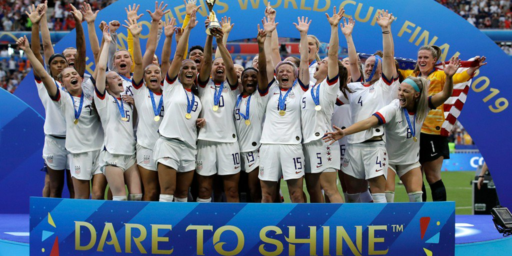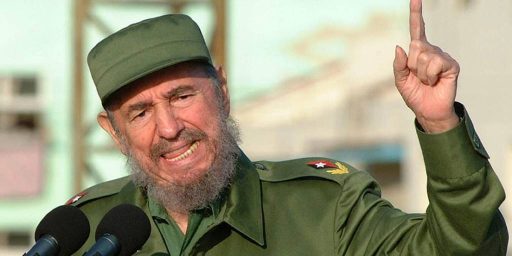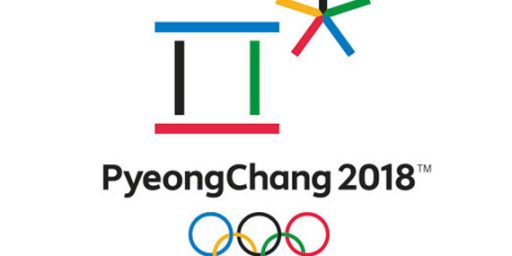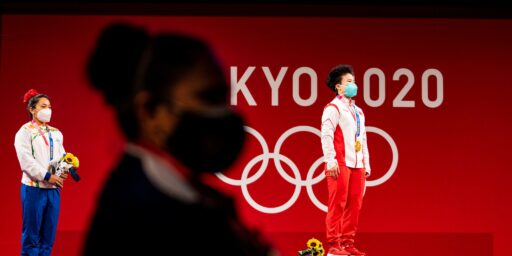Cameroon’s “Missing” Olympians
Eight of Cameroon's 37 Olympians are "missing."
Eight of Cameroon’s 37 Olympians are “missing.”
Alexandra Evans, FP Passport (“Missing Olympian total grows to eight“):
Cameroon’s Olympic delegation has confirmed that seven of the African nation’s 37 athletes have disappeared from the Olympic Village. Drusille Ngako, a reserve goalkeeper for the women’s soccer team, is believed to have been the first to disappear in July, escaping the compound while her teammates travelled to Coventry for a final training match against New Zealand. Swimmer Paul Ekane Edingue, scheduled to compete in the men’s 50-meter freestyle, disappeared with his personal belongings next, followed by five eliminated members of the men’s boxing team: Thomas Essomba, Christian Donfack Adjoufack, Mewoli Abdon, Blaise Yepmou Mendouo and Serge Ambomo. The news comes after the Ethiopian team’s 15-year-old torch bearer Natnael Yemane, a member of the London Organizing Committee’s International Inspiration program, disappeared in Nottingham on June 27.
The Guardian speculates that the athletes were motivated to escape the Olympic Village for economic reasons and aim to remain within the European Union.Such disappearances are unfortunately not unusual at international sporting events. After 26 athletes sought asylum during the 2006 Commonwealth games in Melbourne, Australia, nine athletes from Sierra Leon, Tanzania and Bangladesh disappeared from the 2009 tournament. Not all seek legal residence, however, and in 2011, 15 Ethiopian athletes disappeared from the All African Games in Mozambique, a regional hub for illegal immigration. They were rumored to have fled to South Africa in search of employment.
The Olympic games are also known for numerous political defections. Deutsche Welle tracks the first incident to 1948, when Marie Provaznikova, then president of the International Gymnastics Federation, refused to return to her native Czechoslovakia. In a similiar protest against the Soviet Union, nearly half of Hungary’s Olympic delegation defected in 1956 after the failed revolution. The small island of Cuba, however, gets the gold for most defections as low wages and political oppression pushes many talented athletes to seek new teams abroad. Though Cuban coaches have attempted to prevent player-loss by forcing teams to leave competitions early, a national soccer team member managed to file for political asylum as recently as April 2012. Making news for his bronze medal in the men’s all-around, U.S. gymnast Danell Leyva is the son of two Cuban athlete defectors.
The defections of athletes from communist countries is well known; that it’s commonplace for athletes in countries that are merely poor is news to me. Further, in the case of the defections, people were seeking political asylum through a formal process. Here, they’re essentially becoming illegal aliens.






There’s a very funny movie called “Machan” that’s losely based on a 2004 true story a group of Sri Lankans who organized a handball team (made up of people who had never played handball before) for the sole purpose of travelling to an international tournament in Germany and quietly disappearing into the countryside.